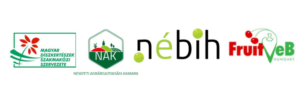Be careful when buying plants from abroad!
Did you like a plant during your holiday outside the European Union and would you like to take it home?Do not do it! We can bring not only a beautiful, exotic plant from distant landscapes into the country, but also many plant pests, which can have an irreversible effect on the domestic wildlife.

It is not worth combining your vacation with buying plants! The National Chamber of Agriculture, the National Food Chain Safety Office, the Interprofessional Association of Hungarian Ornamental Gardeners and the FruitVeB Hungarian Vegetable and Fruit Product Council advise plant-loving travelers never to bring home plants, flowers, seeds, fruits or vegetables from a trip abroad. These may contain pests that can damage plants native to and grown in the European Union. This is what #PlantHealth4Life, a campaign organized by the European Food Safety Authority (EFSA), the European Commission (EC) and 22 European countries, whose domestic partner is the National Food Chain Safety Office, draws attention to.
And why is plant health so important?
An example from 2013 clearly illustrates that some plant health disasters can even be irreversible. In southern Italy, a bacterium (Xylella fastidiosa) originating from the American continent was identified, which by then had already spread in the olive groves of southern Italy, severely damaging the Italian agricultural economy and turning the typical landscape of the region into a deplorable sight. It infected and destroyed 21 million trees in the Puglia region. Since then, unfortunately, it has appeared in several European countries, causing widespread infection: Italy, France, Spain, Portugal. In addition, it is a pest that has 400-600 host plants and likes to attack, in addition to olives, stone fruits, citrus fruits, grapes and a wide variety of ornamental and wild native plants.
Caution is therefore very important
We can bring plant pests into the country from distant places, against which we can no longer protect ourselves once they have entered the country. Either because we do not yet have effective protection technology against it, or because our native plants are not resistant enough. We may also introduce invasive species that can overwhelm native plants and harm local flora and fauna. Help protect the health of our plants by following customs regulations and not bringing plant material across borders.
When buying plants online, it is also worth paying attention to the fact that plants, plant products or some seeds are accompanied by a phytosanitary certificate
This certificate indicates that the plants are free from EU quarantine pests and non-quarantine pests subject to inspection and meet the requirements for import into the EU, thereby reducing the risk of introducing plant pests and diseases into your garden or farm.
Different regulations apply to traveling with plants or plant products in individual countries. Before going on vacation, it is advisable to find out about the plant health risks of the chosen region. Plant pests and diseases can affect our food safety, economy and environment, while healthy plants mean safe food and a sustainable future.
Nébih
Related news
NAK President: more than 120 thousand people signed the agricultural petition in one month
🎧 Hallgasd a cikket: Lejátszás Szünet Folytatás Leállítás Nyelv: Auto…
Read more >Related news
Tourism Business Index: improving sentiment, but the sector remains in the red
🎧 Hallgasd a cikket: Lejátszás Szünet Folytatás Leállítás Nyelv: Auto…
Read more >Lamb Days – Gastronomic Adventure is coming again on March 28–29!
🎧 Hallgasd a cikket: Lejátszás Szünet Folytatás Leállítás Nyelv: Auto…
Read more >Table reservations for National Restaurant Week start with unchanged prices
🎧 Hallgasd a cikket: Lejátszás Szünet Folytatás Leállítás Nyelv: Auto…
Read more >








